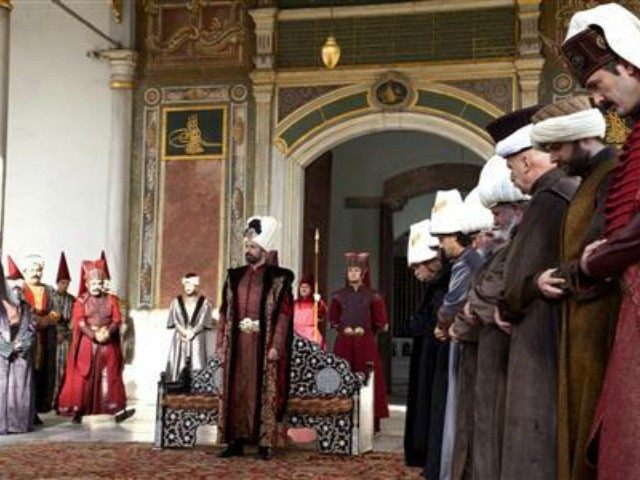The Turkish government has evacuated the site of the Tomb of Süleyman Şah and relocated the tomb’s priceless artifacts to protect it from the Islamic State. The Syrian government is calling the move a “flagrant aggression,” as Turkey did not request permission to traverse sovereign Syrian territory to reach the tomb.
Hurriyet Daily News, a Turkish outlet, reports that the government has declared the operation to temporarily relocate the tomb a success, with only one soldier dead in an unspecified “accident” during the transfer of the tomb. All military personnel guarding the tomb have been moved out of Syria. The action follows reports the Turkish government has denied that the Islamic State had attempted to siege and destroy the tomb.
The endeavor appears to have been an extensive military operation: Prime Minister Ahmet Davutoğlu stated in a press conference that “military helicopters and drones were on duty as 39 tanks and 57 armored vehicles penetrated the border with support teams from Turkey’s Special Forces.” He claimed that troops “took control of an area in the Ashme region of Syria, raising our flag, where Süleyman Şah will later be transferred.”
Süleyman Şah (1178-1236) was the grandfather of Osman I, the founder of the Ottoman Empire, and considered a key figure in early Turkish history. His tomb is the only Turkish sovereign territory not geographically attached to the rest of Turkey.
The Syrian government has reacted to the action with ire. While the Turkish government notified Syria’s diplomats in Istanbul that a major military operation was to take place on Syrian soil– while the tomb itself is Turkish territory, Turkish soldiers had to travel through Syrian territory to get there and return to Turkey– they did not request permission from Damascus. A spokesman for the Syrian government called the act “flagrant aggression” and vowed that Turkey would assume the “repercussions of this aggression.”
Davutoğlu has responded to the Syrian objections to the Turkish military action by stating: “We don’t [need to] ask permission for an operation conducted to protect our rights regarding international law, our nation and our historical heritage. We don’t [need to] ask for help or support from anywhere.”
In addition to the legality of Turkey’s operation on its own, many question whether the Turkish government acted alone in protecting the tomb.
Turkish daily Taraf reported today that the United States provided aid to Turkey in entering Syria. The newspaper claimed that the United States had been asking Turkey for nearly one year to move the tomb.
Others have claimed that Kurdish forces protected the Turkish military during the operation. Today’s Zaman reports that Erdogan spokesman İbrahim Kalın denied that the Kurdish Democratic Union Party (PYD) participated in any way in the operation, reiterating that Turkey considers the PYD a terrorist group. Though the PYD has been officially discounted as an ally, Syrian Kurdish People’s Protection Units (YPG) have claimed that Turkish officials requested their assistance in the operation. A Turkish source told Reuters he had confirmation that the operation was concluded by bringing soldiers through Kobani, a Syrian border town recently liberated from the Islamic State threat by Kurdish forces.
Such cooperation between Turkish and Kurdish forces, if confirmed to be true, would be unprecedented in the tense history of the Turkish government’s relationship with its Kurdish minority.
In October, the Turkish government publicly vowed to do everything in its power to protect the Süleyman Şah tomb, months after a report claimed Turkey had been negotiating with the Islamic State over the tomb.

COMMENTS
Please let us know if you're having issues with commenting.